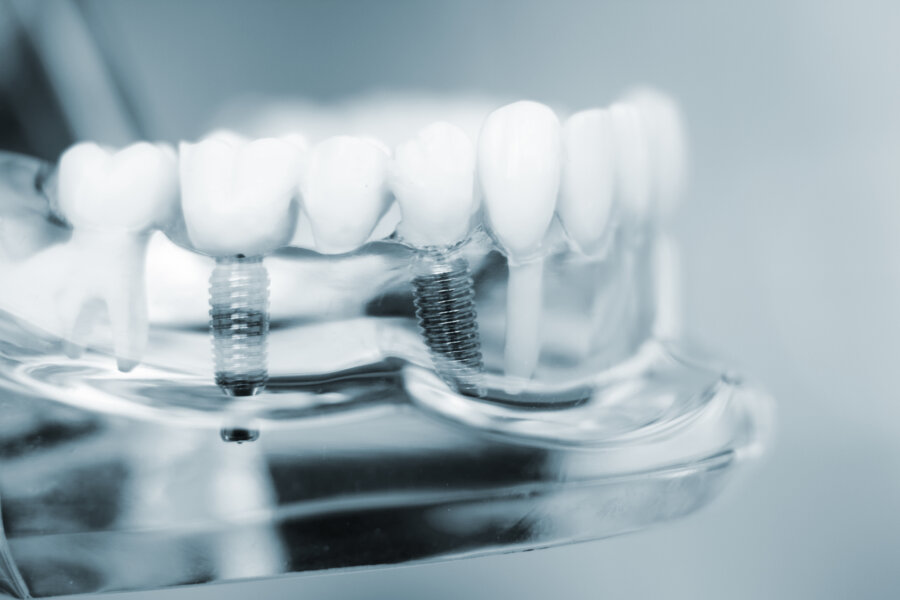
Life After Dental Implants: What to Expect
Dental implants are a great way to replace missing teeth. Once your jaw and gums have healed, they function just like your natural teeth. This means that you will not have any food restrictions, and you will be able to brush and floss your teeth normally. However, many individuals don’t quite know what to expect after the procedure.
Immediately After Dental Implant Surgery
Immediately following the dental implant surgery, you may experience some bleeding, swelling, bruising, and tenderness. This is normal. To stop the bleeding, you’ll need to gently bite down on some gauze. You may also be provided with a prescription for pain medications or advice on the best OTC pain medications. You should avoid taking aspirin, as it thins the blood and can increase bleeding. In addition, you can apply cold packs to reduce swelling and pain. You will want to avoid using a straw, drinking carbonated beverages, and using tobacco, as these items can impede the healing process. We also recommend that you only eat soft foods like applesauce, mashed potatoes, and meal replacement shakes.
Two to Three Days After Receiving Dental Implants
You will want to continue your soft food diet and avoid exercising. If you are still experiencing bruising and discomfort, a heating pad or warm washcloth applied to the side of the face can help. You may also notice that you have chapped lips and jaw and neck tension. Your throat may also be slightly sore, and you may still experience some oozing from the surgical site. During this time period, it is important to stay hydrated by drinking clear liquids.
The First Week After Your Implant Surgery
You should start to feel better after the first week. However, you will want to maintain your soft food diet and avoid using straws, drinking carbonated beverages, and using tobacco products. Most of the bruising and swelling should dissipate, and you should be able to resume light activities. You’ll also have a follow-up appointment about seven to 10 days after you receive the implants in order to ensure the surgical sites are healing correctly. Continue to care for your dental implants as normal.
Two Weeks After Receiving Implants
Some individuals prefer to remain on a soft food diet for up to two weeks after their implant surgery. You can introduce slightly harder foods as soon as you feel comfortable, but it is important to remain conscious of the areas with the implants and try to chew carefully. If you are still having trouble eating solid foods after two weeks, or are still having considerable pain, you may need to schedule an appointment with your periodontist sooner than later.
Four Weeks After Receiving Your Dental Implants
At four weeks, you should not be experiencing any discomfort. You should have resumed all your normal daily activities, including any exercise. You should also be able to eat normally. If you do have pain or discharge at this stage, it could be due to an infection, a problem with the implants, or an allergic reaction. If you are still noticing swelling, tenderness, pain, or discharge, you should schedule an immediate appointment to determine the cause of your continued pain.
Six Months to One Year Later
Your jaw should have fused around the metal implant, securing it in place. You should be able to eat, drink, brush, and floss your teeth normally. Your smile should look great. Any issues with jaw discomfort at this stage are usually due to bruxism or a lack of oral hygiene. If you are concerned about nighttime teeth grinding or need tips and tricks to help keep your gums and teeth healthy, Vero VIP Implants and Periodontics can provide advice and recommendations.
To schedule an appointment and see if you’d benefit from dental implants in Vero Beach, contact our dental office at 772-569-9700.